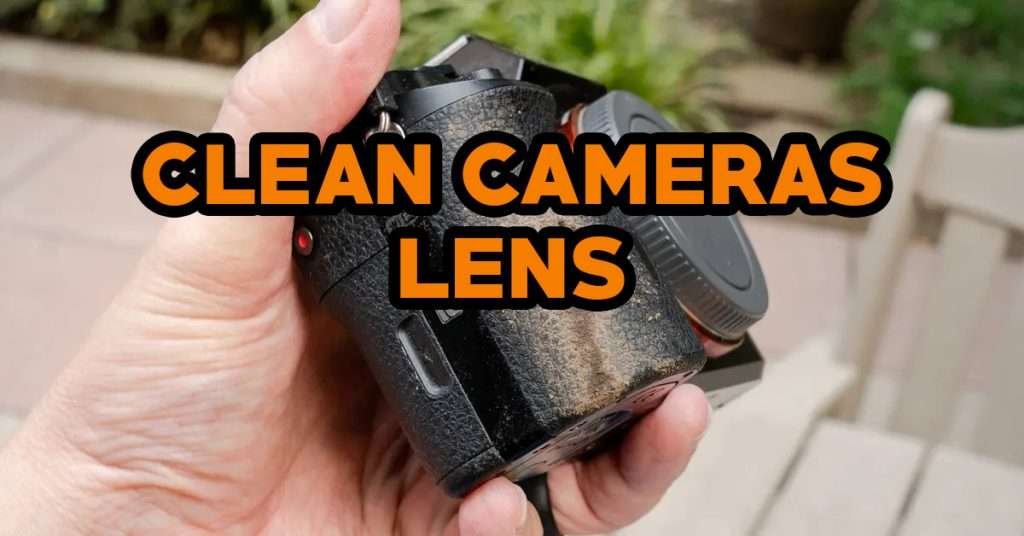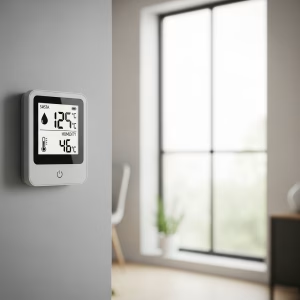When you have a high-quality camera, why does your security footage look grainy or blurry? A dirty lens might be the answer! It is difficult to identify people or objects via video footage when your camera lens is dirty, reducing the effectiveness of the camera. This is why security camera lenses need to be cleaned regularly. Here are some tips for maintaining a clean camera lens while cleaning your camera lens. Find out more by reading on!

Clean Camera Lenses Are Necessary
For high-quality images and video footage, you need to keep your camera lens clean. Sharpness and accuracy of captured images are directly influenced by the clarity of the lens, whether it is from a professional camera, a smartphone, or a security camera. The overall quality of the footage can be affected by several issues caused by dirty lenses, such as blurry images, reduced contrast, and unwanted glare.
Identifying events accurately requires clear and precise images, which are especially vital for security cameras. Security and surveillance effectiveness can be compromised by dust, fingerprints, and smudges on footage. In order for the camera lens to perform optimally, it must be cleaned and maintained regularly to enhance its quality and reliability.
It is impossible to overstate how important it is to have a clean lens in photography and videography. Crisp, detailed images are produced by maximizing the camera’s optical quality and resolution. You will get the best results for your photographic and security needs if you clean and maintain your camera lenses regularly.
A Step-by-Step Guide to Cleaning CCTV Camera Lenses
For clear and reliable surveillance footage, it is imperative to keep your CCTV camera lens clean. Using a CCTV camera lens, here’s how to clean it properly:
Step 1: Gather Your Cleaning Supplies
- Soft, Lint-Free Cloth: Microfiber cloths are ideal.
- Lens Cleaning Solution: Specially formulated for camera lenses.
- Compressed Air Can: To blow away loose dust and debris.
- Lens Brush: A soft brush for delicate cleaning.
- Cotton Swabs: For hard-to-reach areas.
Step 2: Power Off and Disconnect the Camera
In order to avoid damage or injury, ensure that the camera is off and disconnected from any power source before cleaning.
Step 3: Remove Loose Dust and Debris
- Compressed Air: Dust and particles can be gently blown away from the surface of the lens by using compressed air.
- Lens Brush: Sweep away any remaining dust with a soft lens brush. Lenses should be handled gently so as not to scratch them.
Step 4: Apply Lens Cleaning Solution
- Microfiber Cloth: Clean the lens with a microfiber cloth dampened with lens cleaning solution. In order to prevent excess liquid from leaking into the camera, do not apply the solution directly to the lens.
- Gentle Wiping: Wipe the lens gently from the center outward in a circular motion. Removing smudges, fingerprints, and other residues is made easier using this method.
Step 5: Clean Hard-to-Reach Areas
- Cotton Swabs: Make sure the edges of the lens and any crevices around it are cleaned carefully by dampening cotton swabs with lens cleaning solutions or isopropyl alcohol.
Step 6: Dry and Polish the Lens
Dry Cloth: If the lens needs to be polished, use a separate dry cloth or a dry part of the microfiber cloth. Make sure the lens is free of streaks and moisture.
Step 7: Reassemble and Reconnect the Camera
- Reassemble: Make sure that you carefully reassemble any parts of the camera that you disassembled to clean the lens.
- Reconnect and Power On: The camera should be turned on after it has been connected to its power source. Visually check the video feed for clarity and for clean lenses.
How Long Should You Clean Camera Lens
In addition to the environment and weather conditions, the quality of your security camera lens influences how frequently you should clean it. Generally, security camera lenses should be cleaned every three months at the very least.
It may be necessary to clean your camera lens more frequently, perhaps once a month, if you live in an area with a lot of dust, pollution, or heavy rainfall. In the same way, if you notice smudges or fingerprints on the lens, you should clean it promptly so that the footage remains clear.
Keep an eye out for obstructions near your CCTV camera, such as tree branches or spider webs. You can prevent debris from building up on the camera lens by keeping the area surrounding it clean. In order to capture clear, sharp footage, your security camera’s lens should be regularly cleaned to ensure reliable security monitoring.
Final Verdict
In conclusion, you shouldn’t overlook the importance of cleaning the lens of your security camera. Your security system’s effectiveness can be impaired by a dirty or smudged lens. You can keep your camera lens clean by following the steps in this guide and taking advantage of the bonus tips. Keep your property safe by regularly cleaning your camera lens. Now is the time to act!




